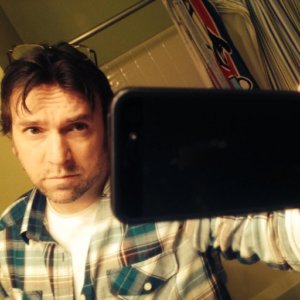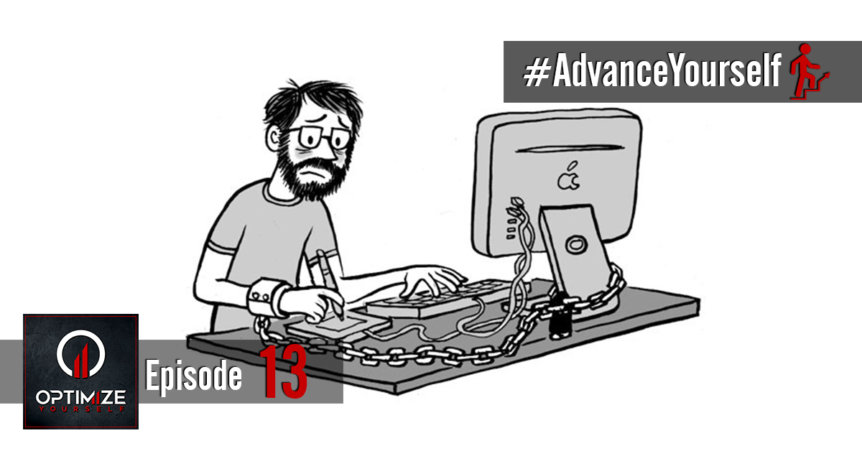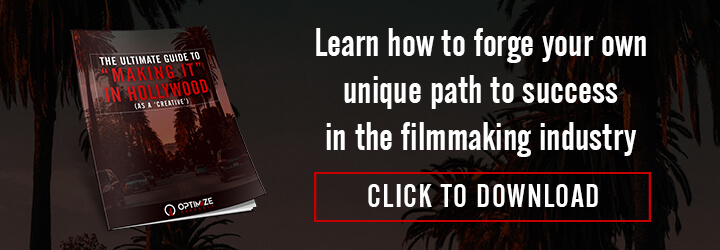For those who work in the filmmaking industry, ‘Below the Line’ is a pretty common term, but in case you’re not familiar with it, it originated as an accounting term to separate the fixed costs of a film’s budget (actors, director, writers, and producers, etc) from the variable hourly, daily, and weekly costs of those working in various crafts such as editing, costumes, or the art department, just to name a few examples. Unfortunately ‘Below the Line’ has become much more of a social status symbol rather than just a simple accounting term.
Today’s interview is one of my favorites from way back in the ‘Fitness In Post’ archives where I had an in-depth chat with editor Mike J. Nichols, otherwise known as the ‘Edit Doctor’ about an article he wrote titled “Is the Term Below the Line Hitting Below the Belt?” In this very candid conversation we talk about the rampant idea that creative workers, film editors like myself being the perfect example, have simply become an extension of our workstations and how this affects the way we are treated by others, as well as our emotional involvement in our work. We also talk about what we need to do collectively to start standing up for ourselves.
If you feel as if you’re being treated like a pair of hands chained to your desk and you want to know what you can do about it, this episode provides plenty of action steps.
- Mike’s first encounter with the phrase “below the line”
- What is “below the line”?
- How the term went from an accounting term to a status term
- On getting emotionally involved in a project you have a limited say in
- On how the “below the line” status is felt differently in each subset of editing
- The feeling of your contributions being undervalued
- What do we do about this status term?
- Most people don’t even know what editors do!
- Technology as a driving factor in our dwindling status as filmmakers
- The editor as the final writer — especially in reality and documentary
- Where we can start with eliminating this “status” — we need to stand up for ourselves and our health
- Search for the cause not just the symptoms
- We need to have a better perception of ourselves
Useful Resources Mentioned:
Ep. 53: From Rehab to Ultra Marathon with Wes Plate
Whiteboard Discussion – Avid Editors of Facebook Group
Whiteboard Discussion – Post Chat
Our Generous Sponsors:
This episode is made possible by Ergodriven, the makers of the Topo Mat, my #1 recommendation for anyone interested in moving more at their height-adjustable workstation. Listen, standing desks are only great if you’re standing well, otherwise you’re constantly fighting fatigue and chronic pain. Not like any other anti-fatigue mat, the Topo is scientifically proven to help you move more throughout the day which helps reduce discomfort and also increase your focus and productivity. And they’re really fun and a great conversation starter.
Guest Bio:

Facebook|Twitter
Mike J. Nichols – “A rare combination of artistry and technology – A young Walter Murch” – actor/director Larry Holden.
As a teenager living in Ohio, Mike’s super-8 films garnered the attention of Frank Zappa’s son, Dweezil, who commissioned him for projects including work on a CBS network television series called, “Normal Life”. With the Zappa’s encouragement, Mike pursued film studies at Columbia College of Chicago winning two back to back short film first place awards which had never happened in the school’s student history.
In Los Angles, Mike edited the award winning indie film, My Father’s House (directed by Larry Holden) which featured Cameron Diaz and Josh Charles. Martin Scorsese praised, “My Father’s House”, as one of his favorite independent films of that year.
Alternately during this time, Mike’s anonymous editing work became famous in the Star Wars community with a video called, “Star Wars: The Phantom Edit”.
“Star Wars: The Phantom Edit” became a phenomenon featured in numerous magazines, newspapers, and television news programs around the world. Chicago Tribune film critic, Michael Wilmington, wrote a 2 page review of Mike’s work summed up in the articles final thesis statement, “…done by someone with a gift for editing”.
Chris Nolan’s film editor, Dody Dorn, was featured in a segment on NPR’s Studio 360 about the impact of Mike’s editing. J.J. Abrams gleamed about Mike’s edit to Entertainment Weekly and director Kevin Smith went on record in an interview calling it “Smart editing ”.
HBO penned the largest syndication deal in history for their hit series, “Sex and the City” but editing out 9 minutes of show content proved to be a difficult endeavor. After two trial run episodes, Mike’s editing and attention to story integrity became the missing piece they were seeking and HBO wrote a exclusive contract making him PREditor for the original syndicated versions of “Sex and the City” .
Musician Billy Joel and Exclusive Media/Spitfire Pictures were looking for a more narrative approach to their feature length documentary and Nichols was signed to be the Editor of “The Last Play At Shea” – written by Academy Award winning writer, Mark Monroe.
“Last Play At Shea” featured three different stories editorially woven into one complete narrative and it premiered at the prestigious Tribeca Film Festival. “The Last Play at Shea’s” world premiere was the largest documentary opening in film history taking place at New York’s Citi Field Stadium for an audience upwards of 60,000 before playing in theaters around the country.
In addition to hundreds of hours of broadcast film and television, Mike has also worked on the Emmy Award winning, “Vito: The Vito Russo Story”, AFI Audience Choice Award winner, “SpineTingler” and the editor on The Zappa Movie, a current film in production directed by Alex Winter.
Mike is known throughout the industry as “The Edit Doctor”. He is an influential speaker regarding post production techniques and the “art of editing”. He has invented a new post production processes and currently has two patents for advanced post production techniques.
Show Credits:
This episode was edited by Curtis Fritsch, and the show notes were prepared and published by Jakin Rintelman. Special thanks to Krystle Penhall and Sarah Furie for helping to spread the love!
The original music in the opening and closing of the show is courtesy of Joe Trapanese (who is quite possibly one of the most talented composers on the face of the planet).
Note: I believe in 100% transparency, so please note that I receive a small commission if you purchase products from some of the links on this page (at no additional cost to you). Your support is what helps keep this program alive. If you have any questions, please don’t hesitate to contact me.




Want to Hear More Episodes Like This One?
» Click here to subscribe and never miss another episode
Here’s What You’ll Learn: